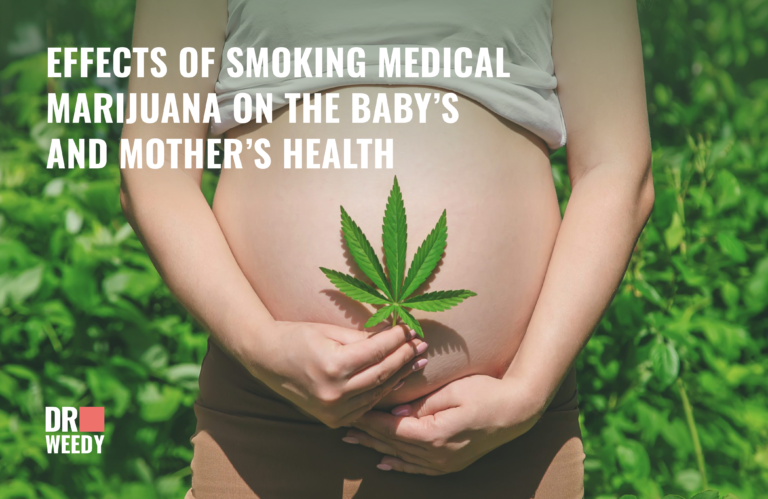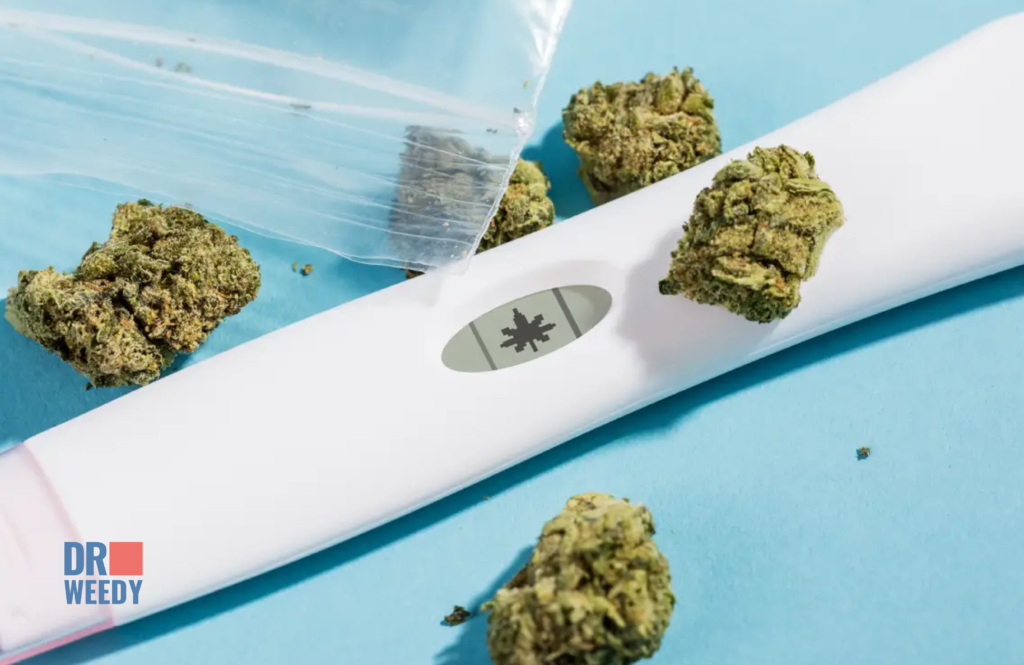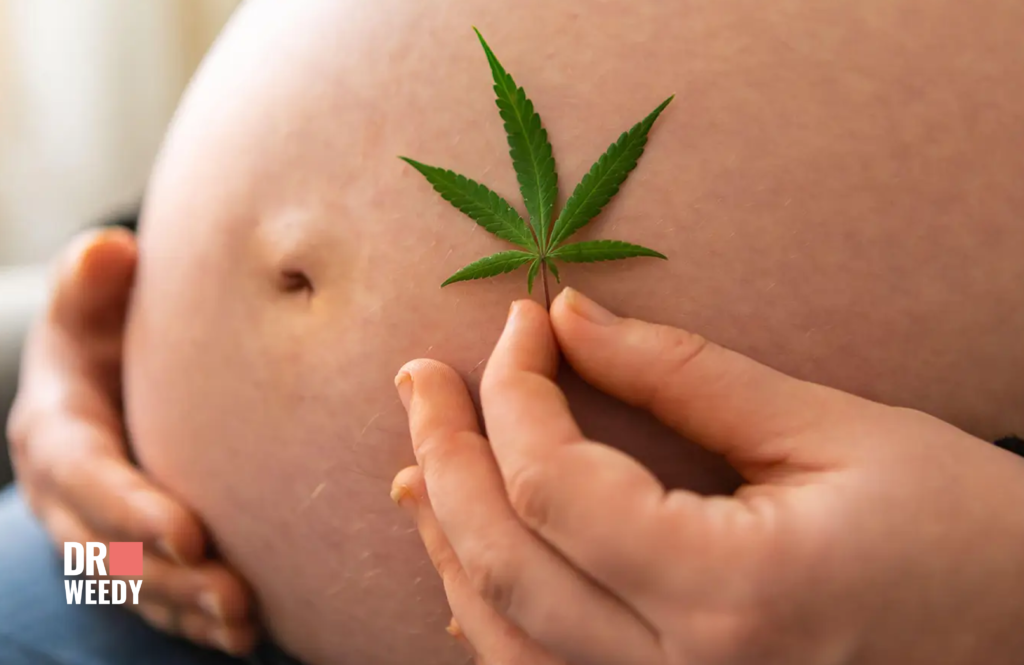Can Medical Marijuana Be Used During Pregnancy?


In recent years, due to the increasing acceptance and legalization of marijuana in American medicine, research into the potential negative consequences of marijuana use during pregnancy has gained significance. Currently, the medical community views consistent marijuana use as a potential risk factor for fetal complications such as:
- Low birth weight;
- Reduced anthropometric measurements;
- Stillbirth;
- Premature birth.
Evidence suggests that excessive marijuana consumption by pregnant women can hinder fetal development. Regular smoking or other methods of consuming cannabis notably heightens the risk of complications. While most studies on marijuana’s effects on pregnancy have been conducted on animals, there is now a consensus within the scientific and medical communities that tetrahydrocannabinol (THC) can impact a child’s brain development. However, the negative impacts of cannabidiol (CBD), present in some medicinal marijuana strains, remain unconfirmed. The varying balance of CBD and THC in different marijuana strains might explain the diverse research findings regarding marijuana’s effects on pregnancy.
To date, no signs of withdrawal have been reported in infants born to mothers who regularly ingested marijuana. However, some in the scientific community claim that THC negatively affects the memory and attention of the child, whose mother used marijuana during pregnancy.
High-THC cannabis strains can be detrimental to a child’s health regardless of the consumption method, be it smoking, vaping, or ingesting. Hence, when medical marijuana is prescribed to pregnant women, doctors typically recommend strains rich in CBD, which are believed to pose lesser risks to both the fetus and mother. Sometimes marijuana is even prescribed to pregnant women to alleviate morning sickness and suppress nausea.
However, ensuring the safe use of medical marijuana during pregnancy is challenging due to the absence of standardized dosages and recommended THC/CBD ratios. As such, expectant mothers or those planning a pregnancy are advised to abstain from marijuana unless prescribed by a physician. When prescribing medical marijuana to a pregnant woman, the doctor should carefully assess the potential risks versus the benefits.
Always consult a physician before using marijuana.
How THC and CBD Effects Breastfeeding

The American Academy of Pediatrics lists cannabis among substances potentially harmful to breastfed children. While there is no confirmed direct harm caused by marijuana during lactation, the prolonged half-life of marijuana is viewed as a risk. Indirect consequences could include a mother’s compromised commitment to feeding and caring for the baby due to cannabis use.
Another concern is passive smoke exposure, whereby a breastfed child might continuously ingest traces of the drug, or develop asthma from the smoke. Prolonged marijuana use can lead to the presence of both THC and CBD in breast milk. However, currently, no research confirms the harmful effects of THC and CBD in breast milk.
Potential Maternal Benefits of Medical Marijuana During Pregnancy
Medical marijuana, especially those high in cannabidiol (CBD), has been used to treat various conditions, including seizures, chronic pain, and anxiety disorders. In the context of pregnancy, while there are potential risks, some women may find relief from certain symptoms:
- Reducing Nausea: Some studies suggest that marijuana can help combat the vomiting and nausea frequently experienced by women in their first trimester.
- Pain Management: Medical marijuana can serve as an alternative analgesic for women experiencing chronic pain during pregnancy.
- Addressing Anxiety: Pregnancy can trigger or amplify anxiety disorders for some women. In some instances, medical marijuana might aid in managing this condition.
- Appetite Regulation: Marijuana can assist in regulating appetite, which could be beneficial for women having dietary issues during pregnancy.
However, it’s important to emphasize that the potential benefits of marijuana during pregnancy should be carefully weighed against the known risks. The use of marijuana during pregnancy is not recommended without consulting with a healthcare provider due to potential adverse effects on fetal development.
What do scientific studies say about marijuana use during pregnancy?

First scientific studies
Federal regulations made it challenging to study the effects of marijuana in controlled scientific experiments until 2015. However, policy shifts during the Obama administration facilitated more extensive research in this area, resulting in numerous studies highlighting the potential harms of marijuana.
A comprehensive study between 1978 and 2001 observed families of long-term marijuana-using mothers. The study did not conclusively link maternal marijuana use with adverse physiological effects in children. In terms of socio-cultural effects, no direct evidence associates cannabis use with specific societal outcomes, as similar issues can arise from nicotine use, unemployment, and other socio-economic factors.
Contrarily, publicized but unconfirmed findings have perpetuated that marijuana can seriously harm fetuses and newborns. This perception has led to numerous legal actions against mothers who consume cannabis, accusing them of child abuse. However, this may lack solid scientific basis.
Metz research
Dr. Metz’s study aimed to identify links between prenatal cannabis use and delayed fetal development, stillbirth, and premature birth. Key findings suggested that marijuana:
- Induces drowsiness in children;
- Slows weight gain in babies;
- Increases the risk of sudden infant death syndrome;
- Reduces mothers’ milk production;
- Might alter a child’s brain cells;
- Can lead to changes in DNA and RNA, disrupting standard development.
Other researchers
The 1990 “Astley and Little” study indicated reduced motor development in children up to age one whose mothers consumed marijuana. Conversely, a study observing infants who ingested THC and CBD through breast milk didn’t report changes in the child’s psycho-motor development. These contrasting results highlight the need for more controlled research to clarify marijuana’s medical use and its effects.
The recent study from the University of Western Ontario (Canada)
Research has repeatedly demonstrated that consuming marijuana during pregnancy can be detrimental to the fetus and disrupt its normal growth. However, the question of its long-term impact on the developing organism remains open. Canadian scientists have recently uncovered that prenatal exposure to cannabis can lead to irreversible changes in the offspring’s brain.
A study conducted by a team of experts from the University of Western Ontario, led by Mohammed H. Sarikahya and Steven Laviolette, revealed that cannabis use during pregnancy can result in significant cognitive impairments that may persist throughout life. This study, published in the journal Molecular Psychiatry, indicated that using cannabis while pregnant can lead to severe cognitive disruptions with lifelong consequences.
“Over the past two decades, concentrations of THC—the primary psychoactive component in cannabis—have risen from 3% to 22%. THC can pass through the placenta and impact the developing fetal brain”, – explained Sarikahya.
To assess the consequences, scientists conducted a series of experiments using laboratory rats of the Wistar strain. These experiments included tests on social interaction, spontaneous alternation, and object recognition. The results revealed that offspring exposed to cannabis in the womb exhibited diminished social engagement, impaired memory of previous social contacts, and reduced learning ability.
Furthermore, the study found that THC disrupts the functioning of the fetal endocannabinoid system, which plays a crucial role in nervous system development, as well as cognitive and emotional processes.
“This disruption leads to a deficiency in essential fatty acids like DHA (docosahexaenoic acid) and ARA (arachidonic acid), which could potentially result in lifelong health problems,” explained Professor Steven Laviolette.
Another significant discovery was that cognitive and behavioral disruptions resulting from prenatal cannabis exposure might differ based on the gender of the fetus.
The researchers emphasized the importance of their study, highlighting the increasing popularity of cannabis among expectant mothers in Canada. According to the Canadian Centre on Substance Use and Addiction, up to 22% of pregnant women aged 18 to 24 reported using marijuana.
More importantly, the study suggested a potential avenue for addressing this issue. Scientists speculate that correcting the imbalances in brain fatty acid composition might mitigate the negative consequences of maternal cannabis use on the fetus. However, completely eliminating its harm is unlikely, and in this scenario, the only reasonable recommendation remains to abstain from cannabis during pregnancy and breastfeeding.
Conclusion
Using marijuana during pregnancy might be medically justified in certain rare situations, as evidenced by its growing integration into Western medicine. Despite numerous studies, a definitive understanding of marijuana’s effects on pregnancy and child development remains elusive. Thus, American doctors take a cautious stance, weighing potential adverse outcomes for the child against therapeutic benefits for the mother.
Often, CBD-rich marijuana strains are chosen as safer alternatives when treating various conditions in pregnant women. However, given the uncertainties, the final decision should always involve informed medical guidance.



























